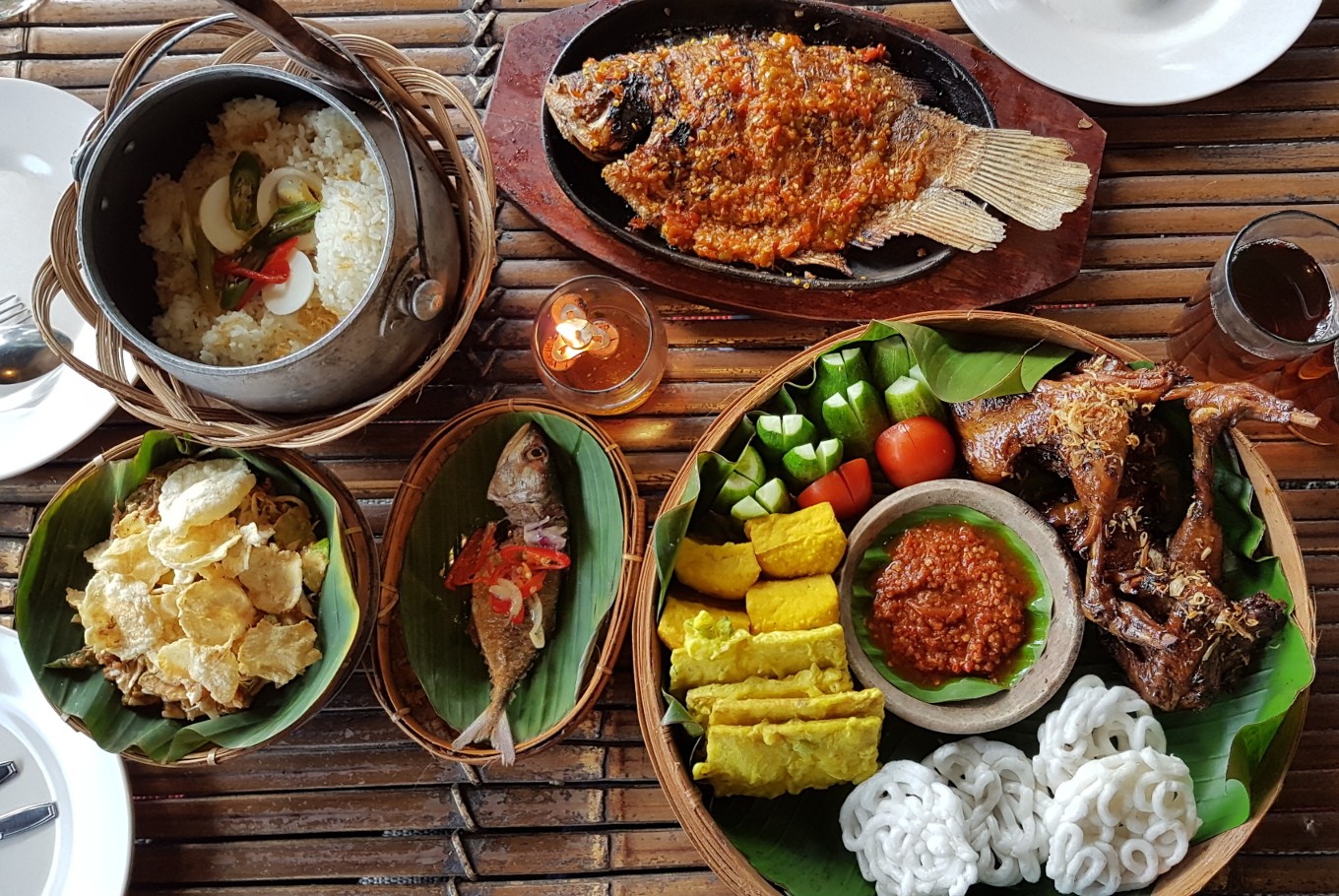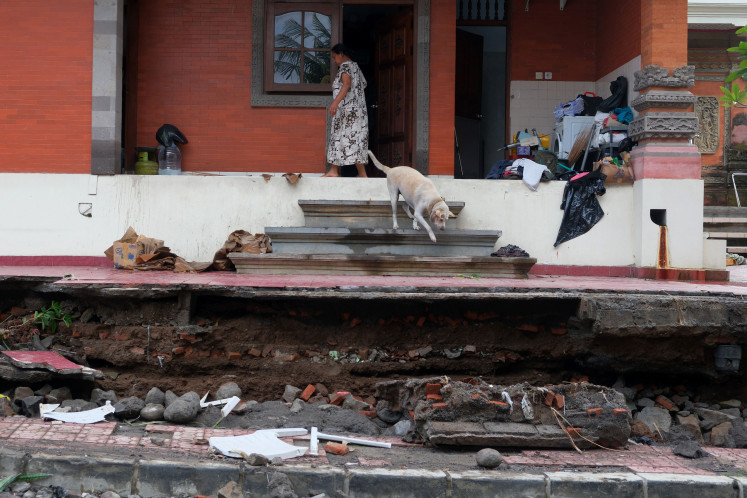Popular Reads
Top Results
Can't find what you're looking for?
View all search resultsPopular Reads
Top Results
Can't find what you're looking for?
View all search resultsFoundation documents culinary heritage via smartphone app
Change text size
Gift Premium Articles
to Anyone
T
he Sobat Budaya Foundation held an event on Wednesday to promote a smartphone app that allows people living across the archipelago to contribute data about Indonesia’s culinary tradition.
The event was scheduled to coincide with the commemoration of the 60th anniversary of the Djuanda Declaration. It follows the launch of the Nusa Kuliner mobile app on Nov. 26.
Through the mobile app, the foundation has so far collected 1.458 sets of culinary data from around the archipelago, which is stored at the Indonesian Culture Digital Library at www.budaya-indonesia.org.
Users were motivated to participate in the data collection effort, promoted under the hashtag # Datathon 7K, through a contest held from Thursday to Saturday. The winners will be announced on Jan. 4. In this contest, internet users are asked to submit data related to Indonesian cuisine.
“So far, we’ve got more than 6,000 entries. We expect to reach the targeted 7,000 this afternoon. This would be the largest culinary database ever achieved in Indonesia,” the founder of the Bandung Fe Institute and advisor to the Sobat Budaya Foundation, Hokky Situngkir, told The Jakarta Post via telephone on Saturday.
Read also: Indonesian culinary specialties go digital
Hokky noted that a systematic effort to collect data on Indonesia’s culinary heritage was carried out by the Dutch during their occupation of the country in 1902, where they managed to record 1,380 traditional Indonesian dishes from around the archipelago. The next culinary heritage data documentation effort was done under then-president Sukarno for the book Mustika Rasa, which was compiled by his wife, Hartini, and published in 1967 and re-published in 2016.
“Both the Dutch and Mustika Rasa’s documentation were top-down efforts. In the past, there were time and space constraints, so the results are not as specific as what we are getting now with the bottom-up method,” Hokky said. “Now we know that, for example, there is not just one kind of Bubur Manado. We have also Bubur Minahasa and other variants,” he added.
The Djuanda Declaration, written on Dec.13, 1957, outlines Indonesia’s unity as an archipelago encompassing the country’s ordinance, borders and peaceful traffic to ensure the security of the republic. The Datathon 7K #NusaKuliner initiative, said Hokky, was an effort to unite the people of Indonesia via their taste buds.
Read also: Sobat Budaya collects digital data on cultural heritage
Hokky expressed his hope that the culinary documentation effort would continue. In fact, he aims to document 15,000 traditional dishes in the Indonesian Culture Digital Library.
“[The online data] will be open for the public, and research on Indonesian cuisine will continue. We do this, because standard anthropological approaches cannot get the details we are getting,” Hokky said. "We hope our friends from the anthropology field will join us, as we also will collaborate with the Indonesian Institute of Sciences (LIPI) regarding culture, which includes culinary traditions,” he added.











